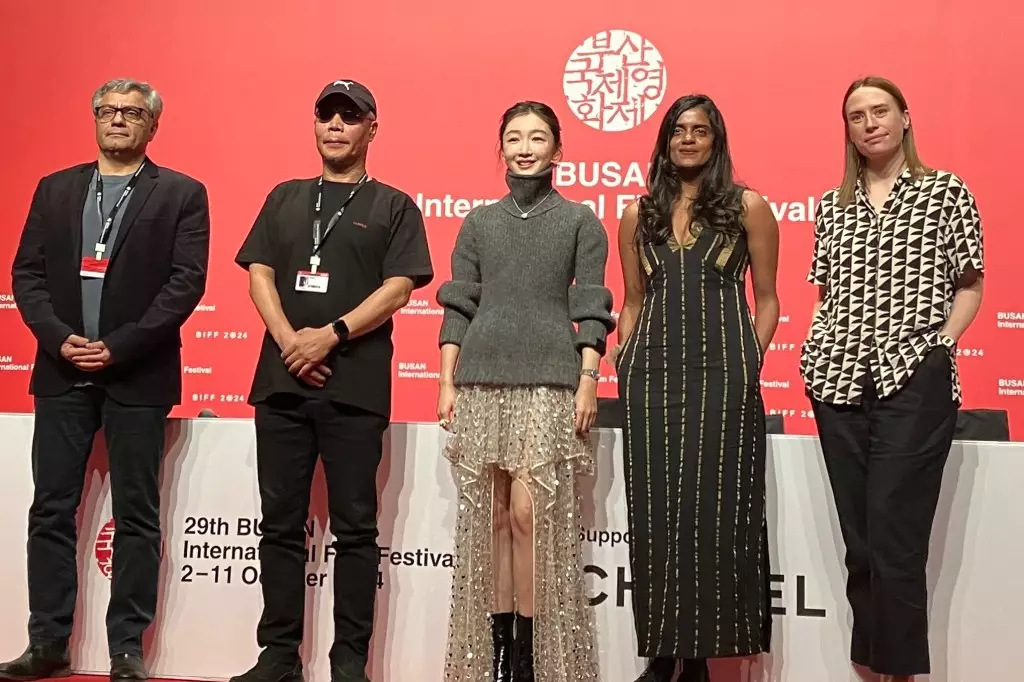The art of storytelling through film is one of humanity’s most profound expressions of culture and emotion. However, for many filmmakers worldwide, including Iranian director Mohammad Rasoulof, this craft is fraught with challenges and oppression. Rasoulof’s latest work, *The Seed Of The Sacred Fig*, which has been selected by Germany as its Oscar submission, carries with it immense significance, particularly in the context of censorship. Living in exile in Germany, Rasoulof fled Iran following a draconian sentence of eight years of imprisonment for producing the film without the necessary government permits. His experience epitomizes the struggles faced by artists in oppressive regimes, yet it also speaks to the resilience and hope that can flourish even in the most difficult circumstances.
The decision by Germany to advocate for Rasoulof’s film at the Academy Awards not only highlights the international community’s role in supporting free expression but also provides a beacon of hope for filmmakers. As Rasoulof asserts, this move symbolizes an understanding of diverse cultures and reaffirms the relevance of human narratives that transcend borders. For Iranian filmmakers working under the iron grip of censorship, Rasoulof’s achievement offers a sense of solidarity and optimism. It signals that stories, no matter how controversial, deserve to be told and that there are avenues outside their home countries where those stories can find a receptive audience.
The collaboration between Iranian artists and foreign entities, as seen in *The Seed Of The Sacred Fig*, poses an interesting dichotomy. While the film is fundamentally Iranian, its German producers and investors facilitate a conversation that challenges the ghettos of nationalism often imposed by oppressive regimes. In many ways, Rasoulof’s experience illustrates an evolving cinematic landscape that embraces international partnerships and collaborative efforts. By collaborating across borders, filmmakers can create a richer tapestry of storytelling that reflects variances in culture, perspective, and social issues, transcending the limitations placed upon them by their governments.
Germany’s embrace of Rasoulof’s work can be viewed not just as an act of support but as a proactive approach to cultural exchange. In an increasingly polarized world, global cooperation in the arts has the potential to foster greater understanding among nations. Therefore, Rasoulof’s narrative is not solely one of personal triumph; it is a representation of how solidarity within the filmmaking community can cultivate resilience and hope amid cultural suppression.
In Busan, the atmosphere is alimented by diversity as filmmakers from varied backgrounds come together to share their narratives and visions. The New Currents competition, under Rasoulof’s judgment alongside a panel of esteemed international jurors, offers a platform for undiscovered voices from Asia to emerge. This opportunity is vital in nurturing innovative storytelling that reflects contemporary issues, internal struggles, and shifting cultural landscapes.
The concerns raised by jury member Lee Myung Se regarding the state of post-pandemic Korean cinema reflect a broader global dilemma. He emphasizes the necessity of assessing directorial visions that profoundly resonate with audiences, regardless of the metrics of success typically associated with quantity over quality. This focus on intrinsic merit can reopening discussions on what constitutes “true cinema” in an era often dominated by commercialism and superficial narratives.
Another juror, Chinese actress Zhou Dongyu, articulated an optimistic view for the future of cultural exchange between China and Korea, despite the history of political tension. As events like the Busan International Film Festival bridge gaps between countries, they present opportunities for the depth of artistic expression to flourish. Zhou’s hopeful outlook underscores the belief that art can serve as a unifying force even amid disagreement. This sentiment resonates strongly within the multi-faceted array of films showcased at such festivals.
Indian actress Kani Kusruti’s reflections on the diversity and quality present within Indian cinema indicate a promising shift in narrative approaches. Her comments suggest that a vibrant film culture—with numerous stories waiting to be told—can enrich global cinema and inspire filmmakers universally. The diverse tapestry that constitutes cinema today offers insights into various experiences and forms, challenging the confines of previously homogeneous narratives.
Through the prism of events like the Busan International Film Festival, we witness the indelible impact of film as a tool for societal reflection, resistance, and cultural dialogue. Directors like Mohammad Rasoulof demonstrate that while censorship seeks to stifle creativity, the human spirit remains resilient. The evolving landscape of international cinema invites new dialogues about shared experiences, cultural complexities, and the universal human condition—inspiring generations of filmmakers to continue their pursuit of truth, art, and expression, undeterred by the chains of oppression.
